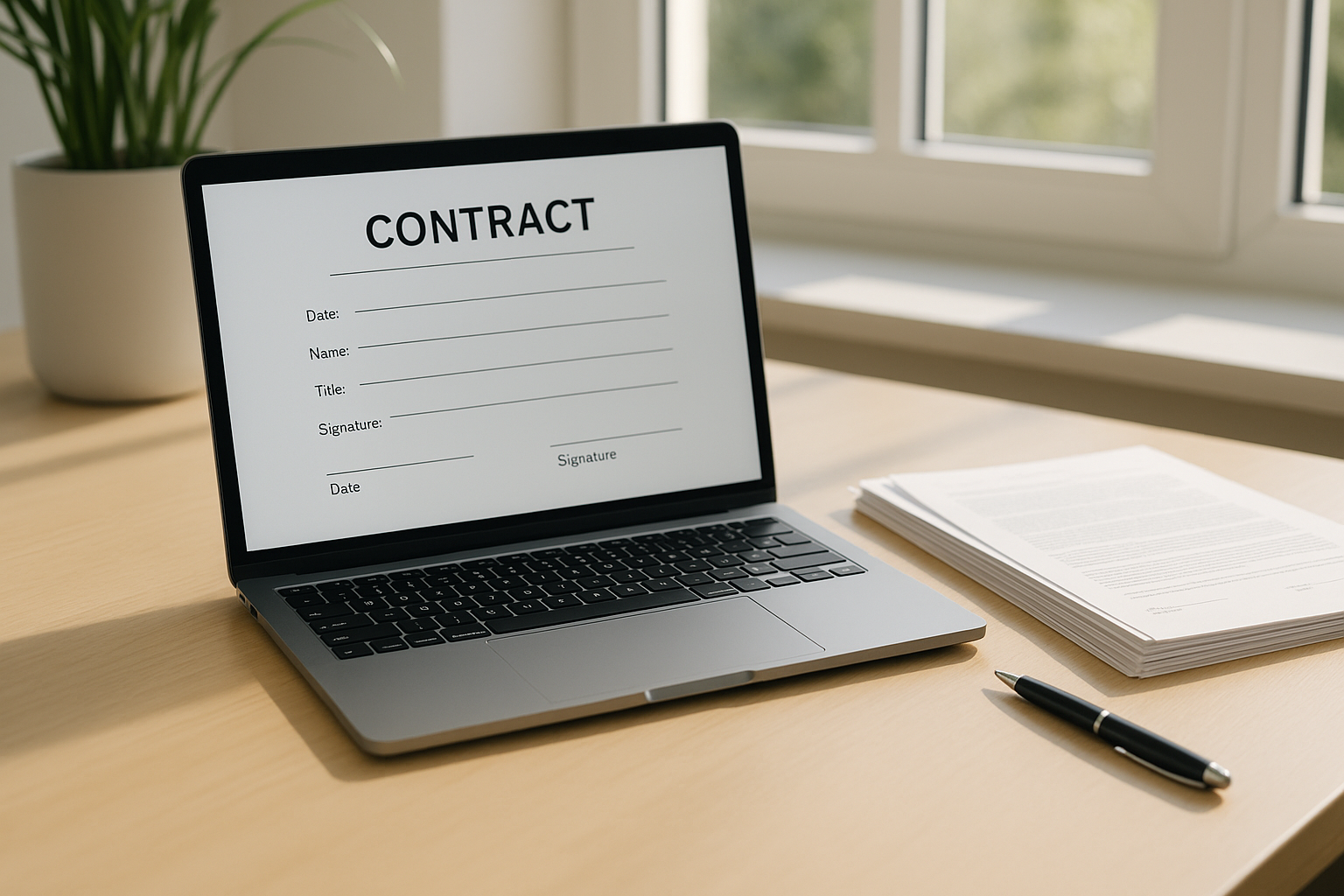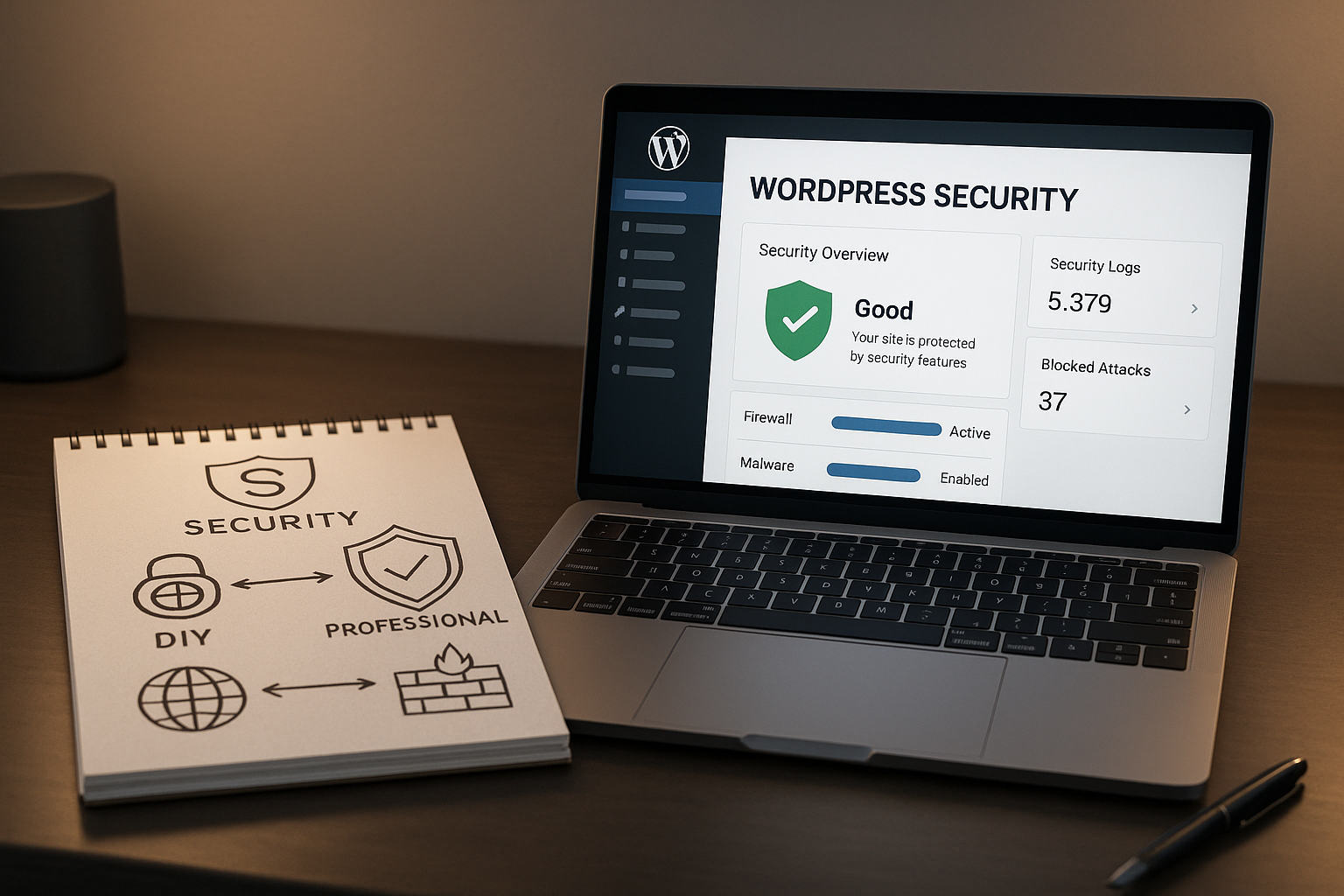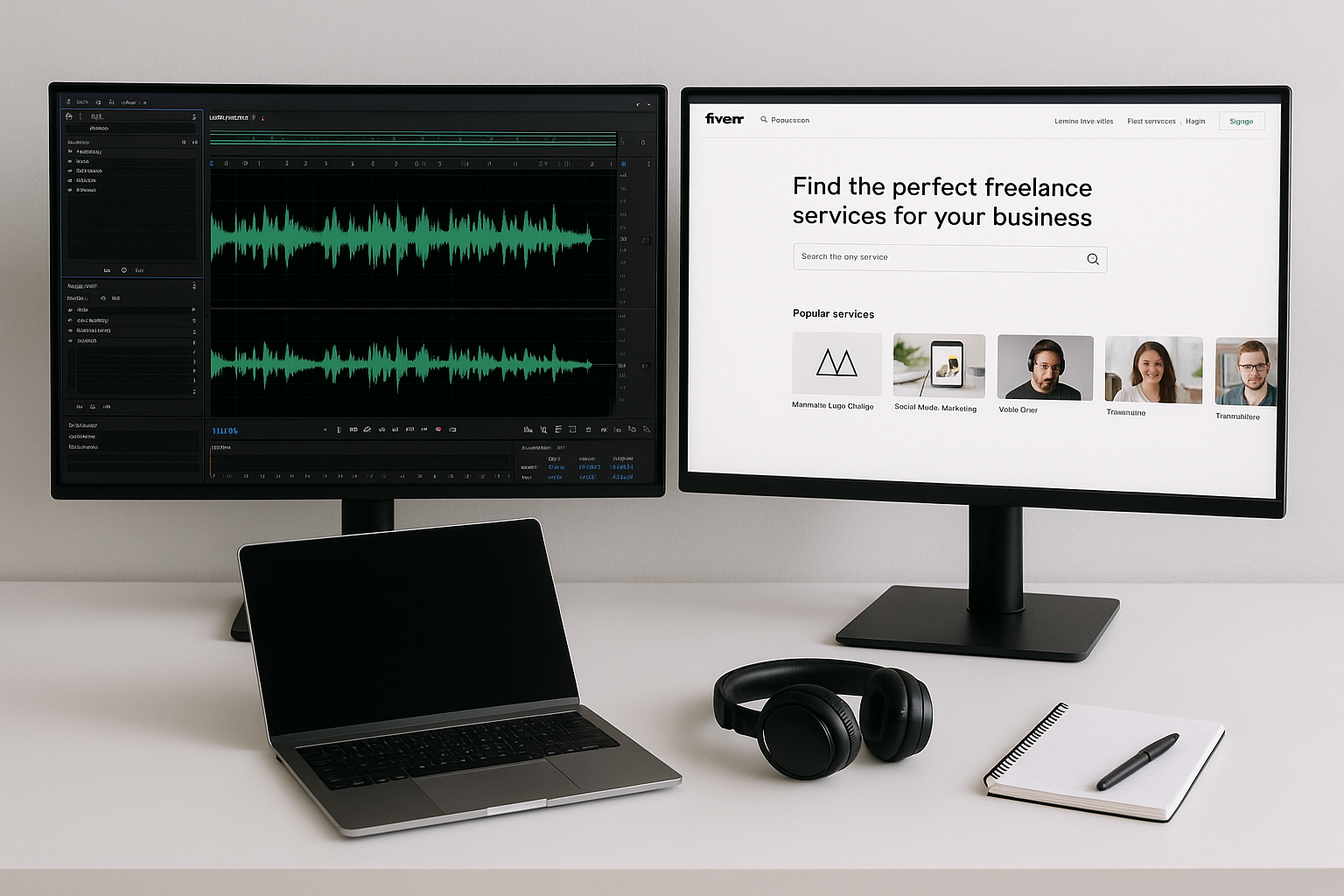write contract yourself or hire lawyer is one of the most challenging decisions early-stage founders face when balancing tight budgets against potential legal pitfalls. Whether you are drafting NDAs, shareholder agreements, or service contracts, the approach you choose can shape how well your startup is protected. In the fast-paced world of entrepreneurship, sloppy paperwork can cost thousands—sometimes millions—in litigation or settlement fees.
Before you decide whether to draft legal documents on your own or hire an attorney, it’s crucial to understand the basic requirements for an enforceable contract. Elements like clarity, mutual assent, and lawful consideration all ensure that an agreement holds up in court. The stakes are high, so it’s no wonder that many founders wonder if they should write contract yourself or hire lawyer for maximum protection.
In this guide, we’ll explore critical advantages and disadvantages of going the DIY route, using legal templates, leveraging Fiverr freelancers, or turning to a traditional law firm. By the end, you’ll have a robust framework to help you decide which path best suits your startup needs.
Key Takeaways
- Contracts must meet certain criteria—offer, acceptance, consideration, and lawful purpose—to be enforceable.
- “Risks of DIY NDA” include poorly defined confidential information and unenforceable clauses causing potential legal exposure.
- “Fiverr contract drafting vs DIY” may provide affordable solutions but requires diligent vetting of freelancers.
- “Legal template vs custom agreement” weighs upfront cost savings against the security of tailored, state-specific terms.
- Ultimate choice to “write contract yourself or hire lawyer” depends on transaction value, complexity, and your startup’s risk tolerance.
Why Proper Contract Drafting Matters
Founders often juggle marketing, product development, and hiring, leaving legal documents as an afterthought. However, when disputes arise, a poorly drafted contract can expose you to considerable financial risk.
According to LegalZoom, business litigation can cost anywhere from $3,000 to $150,000—and that might just be a preliminary figure. Overlooking basic clauses, such as a governing law statement or a venue clause, can lead to jurisdictional nightmares. In addition to immediate legal costs, unresolved contract disputes can scare off potential investors and hamper future fundraising.
DIY Contract Drafting: Pros & Cons
Some founders choose to write contract yourself or hire lawyer after weighing immediate needs. DIY drafting can feel appealing, especially if your budget is tight. You maintain full control, can iterate quickly, and avoid paying hourly rates. However, hidden pitfalls lurk beneath this cost-saving option.
Pros:
- Cost Savings: No hefty attorney fees upfront.
- Immediate Control Over Content: You decide all the terms, additions, and revisions.
Cons:
- Legal Gaps: Omitting small but crucial clauses (like a venue or arbitration provision) can lead to costly disputes.
- Ambiguity Risks: Poorly worded contract language may invite litigation or be unenforceable.
- Time Drain: Researching state-specific legal nuances can be overwhelming for non-lawyers.
Consider a scenario cited by GRGB Law where a critical clause is missing. You could spend thousands more defending your position later than what you might have paid a lawyer initially. This is why many question whether it’s truly worth it to write contract yourself or hire lawyer with specialized experience.
Risks of DIY NDAs
Non-disclosure agreements (NDAs) protect your most sensitive information by limiting how it can be shared. They’re especially critical in early-stage startups working on proprietary technology, unique business models, or confidential financials.
However, risks of DIY NDA drafting abound. Founders often overlook basic elements, such as defining “confidential information” or specifying the duration of the NDA. Some states also have strict rules invalidating over-broad clauses, which could render your NDA pointless if challenged.
Without a valid NDA, you might lose the ability to claim trade secret protection or seek damages for breaches. According to Bensinger Legal, not seeking legal advice for critical documents like NDAs can cost far more than a lawyer’s initial fee if a breach jeopardizes your competitive advantage.
Legal Template vs Custom Agreement
Using a “legal template vs custom agreement” is another common debate. Boilerplate online contracts can be quick to download and straightforward to fill out. They might even be suitable for minor, low-value transactions. But for strategic deals, relying solely on templates could be a mistake.
| Aspect | Legal Template | Custom Agreement |
|---|
| Cost | Low to free | Higher upfront |
| Flexibility | Limited | Highly tailored |
| Enforceability | Potentially compromised if outdated | Robust, specific to your deal |
| Jurisdiction | May not account for local laws | Customized to relevant states |
| Negotiation | Generic terms, few negotiation points | Allows thorough back-and-forth drafting |
If you’re in an industry like fintech or healthcare, you’ll need precise language to comply with local regulations. Using a template could overlook these intricacies. Over time, that oversight might spawn compliance issues—leading to fines or regulatory scrutiny.
Because of these dangers, experts at Hollington Law Firm note that even in seemingly straightforward industries, templates can cause unintended liabilities. Whether you choose a legal template vs custom agreement depends on the importance of the deal, your tolerance for risk, and whether you’re ready to pay for a specialist’s expertise.
Fiverr Contract Drafting vs DIY
When founders are hesitant to pay top dollar at a law firm, Fiverr contract drafting vs DIY becomes an attractive middle ground. On Fiverr, you can find freelancers claiming legal expertise at lower rates than most law offices charge.
Benefits:
- Fixed Pricing: You often see clear package rates, so there are fewer surprises.
- Global Talent Pool: Hiring attorneys or paralegals from different jurisdictions can help if your business operates internationally.
Risks:
- Credibility Checks: You have to verify bar admissions or professional background yourself.
- Platform Policies: Any dispute might be subject to Fiverr’s resolution terms, which may complicate truly sensitive legal issues.
At the end of the day, going this route can solve budget concerns but requires extra diligence. You need to confirm your freelancer’s credentials via state bar websites and thoroughly discuss revision policies to avoid rework fees. An experienced Fiverr attorney could create a contract that’s more robust than a cookie-cutter template. Still, the question of whether to write contract yourself or hire lawyer with a deeper background remains central to your final decision.
Cost of Freelance Lawyer on Fiverr
The cost of freelance lawyer fiverr services can range widely. Simple NDAs might go for $40–$150, while more complex shareholder or operating agreements could range from $200 to $500. If you need extensive documentation—like SaaS terms of service combined with a privacy policy—you might pay $350 to $1,000 or more.
In contrast, a traditional law firm could charge $250–$450 per hour or higher, depending on the experience of the attorney. It’s easy to see the appeal of a fixed-fee Fiverr gig when money is tight. Yet, you also must consider hidden costs, such as revision fees or platform service charges.
Ultimately, a well-drafted contract can save you tens of thousands in potential litigation. J. Baker Law Group advises that founders weigh short-term cost savings against potential long-term disputes. The decision to write contract yourself or hire lawyer often boils down to factoring these cost variables in the context of your transaction’s value.
Decision Framework: When to DIY & When to Hire
Not every agreement demands heavy legal fees, but some clearly do. Here’s a simple checklist to clarify if you can safely do-it-yourself or should bring in professional help:
- Value at Stake: The higher the contract value (or potential damages), the more it makes sense to hire a lawyer.
- Complexity: Multi-state or international deals often need specialized clauses, making DIY riskier.
- Regulatory Considerations: Heavily regulated industries like finance or healthcare aren’t good fits for generic templates.
- Party Sophistication: If you’re dealing with a big corporation, they likely have legal counsel. Level the playing field by hiring your own lawyer.
Low-risk scenarios—like a one-off consulting gig worth a few hundred dollars—could be fine for DIY or an online legal template. But if you’re drafting a key investor agreement or an IP assignment for your flagship product, you should debate further: write contract yourself or hire lawyer with subject-matter expertise to ensure bulletproof terms.
Practical Action Steps
Use these best practices to safeguard your contracts:
- Audit Existing Agreements: Identify where you used informal or template-based documents and assess their risk level.
- Create an Issue-Spotting Checklist: If you rely on any template, ensure it addresses jurisdiction, dispute resolution, and any unique industry requirements (like data compliance).
- Fiverr Due Diligence: Ask for a sample of previously drafted redacted agreements, verify license status, and clarify revision policies in writing.
- Version & E-signature Control: Use platforms like DocuSign to maintain a secure record of signature timestamps and final versions.
Following these steps reduces the margin for error, whether you’re trying “fiverr contract drafting vs diy” or picking from an online library. In either case, vigilance and clarity are paramount to ensuring enforceability.
Conclusion
Ultimately, the choice to write contract yourself or hire lawyer hinges on the complexity and stakes of the document. If you’re dealing with low-risk, straightforward agreements, a well-researched DIY approach or a vetted Fiverr freelancer could suffice. But for mission-critical contracts—equity deals, IP transfers, high-value NDAs—consulting a qualified attorney often provides robust protection.
When your startup’s future and investor confidence ride on airtight documentation, the small investment in professional guidance can yield substantial peace of mind. We urge you to weigh all the considerations—upfront costs, potential legal exposures, and the nuances of your industry. By making an informed choice now, you can sidestep unexpected disputes later.
Keep these insights handy, share them with co-founders, and never forget the far-reaching impact sound contracts have on your business journey.
Frequently Asked Questions
Q1: Are free online templates enough for all my contracts?
Free templates can be a good starting point for simple, low-value deals. However, they may miss critical clauses or fail to account for state-specific rules, increasing risk for high-stakes agreements.
Q2: If I use Fiverr, can I trust the legal expertise of the freelancer?
It depends. Always verify a freelancer’s credentials by checking bar admissions or professional certifications. Request sample work and clarify revision policies before committing to ensure you get quality service.
Q3: What makes NDAs particularly risky when crafted DIY?
The risks of diy nda range from overly broad definitions of confidential information to invalid time limits. Missing or unenforceable clauses could result in losing trade secret protections.
Q4: How do I decide if I really need a custom agreement?
Ask yourself how complex the deal is, whether your industry is highly regulated, and the magnitude of legal exposure if something goes wrong. If the stakes are high, a legal template vs custom agreement comparison often tips in favor of a custom, lawyer-drafted contract.
Q5: Can a lawyer from another state draft my contract if my business is local?
Potentially, yes, but they need to be knowledgeable about your state’s laws. A misstep in jurisdiction or governing law clauses can diminish enforceability. Always confirm your lawyer’s experience in your specific locale.




